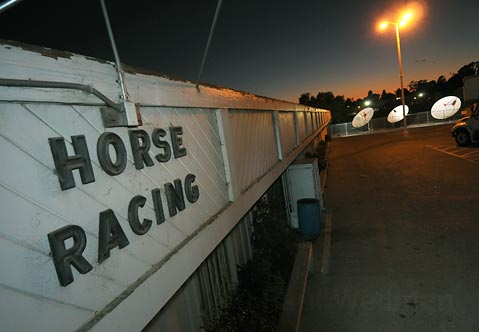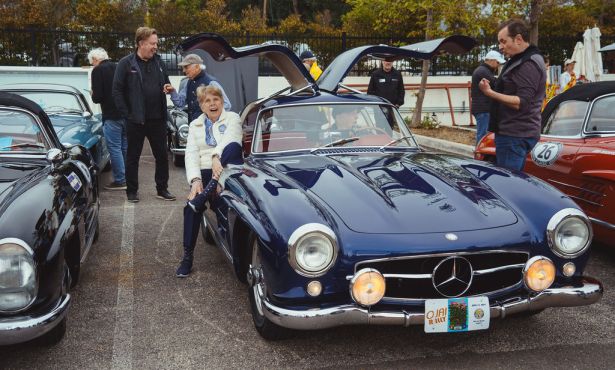Why Satellite Wagering Failed
A Gambler Explains Why Earl's Place Failed and How to Save Televised Horse Betting

With the final coffins being nailed into Earl’s Place – the satellite wagering facility located at Earl Warren Showgrounds – this week, at least one longtime horserace gambler isn’t letting the news go quietly into the night.
“It’s a shame,” said Vernon Marquez, a Camarillo resident who’s been betting on horses since 1958 and was a frequent Earl’s Place visitor. A stock market player by day, Marquez – who consulted with major racetracks for 15 years and invented a number of betting options, such as the “rotating daily double” and “super high five” – said that Earl Warren “should have stayed open through the Breeder’s Cup [in early November]. It’s not very thoughtful what they’re doing at all.”
That would have been a proper thank-you to the regulars, said Marquez, who explained that horse players’ fees paid for the construction of Warren Hall, the nicer building that once housed the satellite operation before the gamblers were relegated back to their original, less fancy digs where they play today. “Earl Warren could have been successful,” said Marquez. “They had the big building that was built entirely by horse players’ money, but they essentially confiscated the building. That set it back in the dark ages.”
Because Internet betting is easy, Marquez agrees that Earl’s Place may have been inevitably doomed. The entire system, said Marquez, “is falling apart. It’s in terrible trouble.” To Marquez, the reason is simple. “When they gave the exclusive franchise to the state, they shot themselves in the foot,” he explained, criticizing California’s laws that keep these wagering facilities on fairgrounds. “They were running it like a 7-11 store,” he opined, “and it’s a professional business for gamblers. They weren’t running it in a casino format.” Marquez says that state employees don’t have the experience needed to run a gambling house, and thinks that satellite facilities don’t know their audience. “They offered no perks, and gambling is a perk business,” said Marquez, explaining that in Las Vegas or other casinos, gamblers are treated very well and that’s why they keep coming back.
Marquez believes satellite wagering could be successful in California if the state switched to a Arizona-type format, where gambling is allowed in certified restaurants and bars. “They need to be smaller but more easily accessible facilities and they have to be facilities that are looking to get income through food, beverage, and wagering sales,” he explained, and he has heard that someone in Santa Barbara might be looking into this possibility.
Of course, Marquez says he saw this all coming in the mid-’90s, and warned the industry accordingly in a paper that he wrote for Del Mar Racetrack and Oak Tree Racing, but they were too slow to act. “If you date it, I was years ahead of the industry,” he said. “Everything that has happened in the industry I predicted it happening.” Today, aside from moving satellite wagering to more hospitable locations, he recommends racing on fewer days, shifting to four days per week with 10 races per day rather than five with eight races, as is common now.
As for Earl Warren, Marquez is unrelenting. “When they walk away,” he said, “they’ll have two buildings that the race track customers paid for.”



